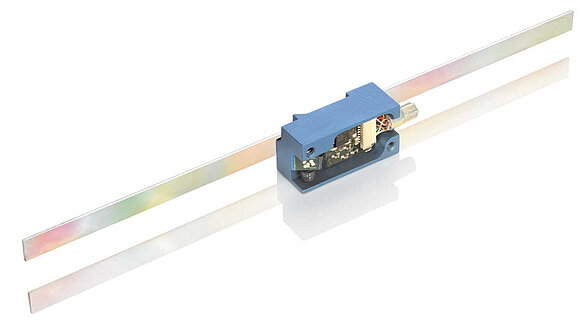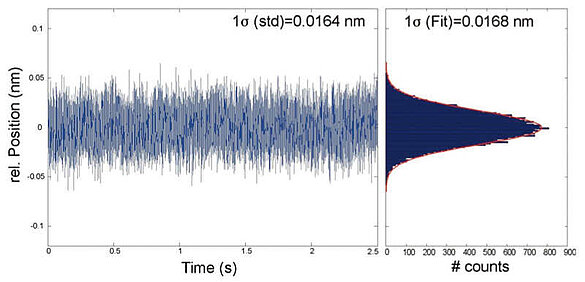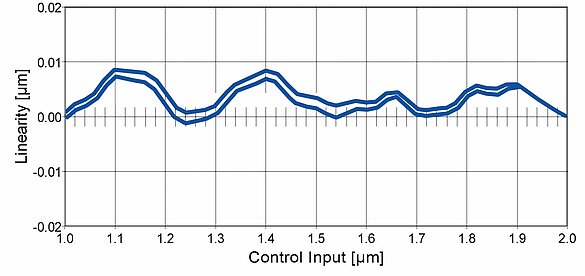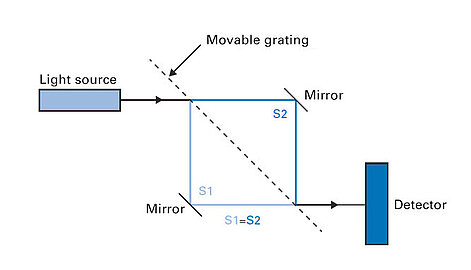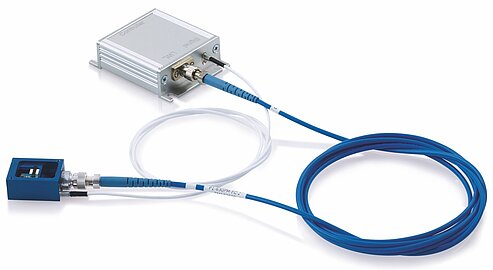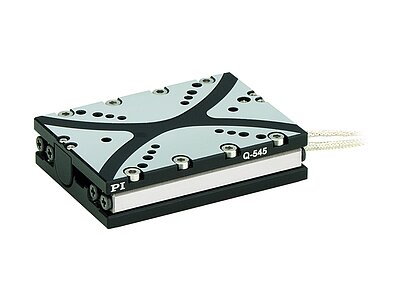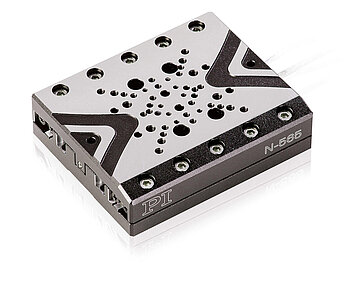High Resolution, Linearity, and Compact Installation Space
- Resolution to 20 picometers RMS and better
- Compact dimensions 23 mm × 12 mm × 9.5 mm
- Output of sine, cosine, or quadrature signals
- Low power consumption and low self-heating
- Accuracy class of the grating 150 nm/30 cm
- Suitable for high vacuum to 10-7 hPa, bakeout to 80 °C
- Preferably for travel ranges > 1 mm
- Velocities up to 0.8 m/s at maximum resolution
- BiSS interface for secure data exchange
Small and Picometer Resolution
The high-resolution linear sensor PIOne developed by PI ensures a position resolution of far less than a nanometer with adequate processing of the measurement.
PIOne employs patented technology: The measuring head of PIOne contains a Mach-Zehnder interferometer which is moved along a linear scale. Sine and cosine signals are generated from the signals of the reflections at the grid. Additional interpolation accounts for the demonstrably small resolution of the system. The sensor head also generates a direction-sensing reference. The sensor head here measures 23 x 12 x 9.5 mm.
20 pm Resolution
The resolution of the incremental sensor, i.e., the smallest measurable displacement of the sensor head along the scale, is mainly influenced by the length of the signal period of the sensor, the noise of the processing electronics, and the electronic interpolation factor of the signals.
The level of the interpolation factor, however, is limited by the noise of the signals and can only be selected within a certain range. For this reason, a signal period as small as possible is to be preferred, allowing for a high resolution even with a lower interpolation factor.
The PIOne sensor achieves a resolution of 20 picometers and better due to its small signal period of 0.5 µm and the optimized signal processing. In this instance, interpolation with a factor of 4000 is possible without noise.
Less Than 1 % Linearity Deviation
Small signal periods of 0.5 µm, an accuracy class of the grating of better than 150 nm/30 cm and a high quality of the signals lead to a sensor linearity error of only < 1%. The sensor head of PIOne contains a Mach-Zehnder interferometer in which the optical paths are equalized and entirely symmetric. This allows compensation of ambient influences, such as temperature and humidity.
The used laser diode operates at comparably low performance to minimize the heat generated in the sensor head. To largely avoid heat generation in a measuring system, the light can optionally be coupled via an optical fiber in the sensor head of the PIOne sensor.
Since the signals of the PIOne sensor can be processed by different PI controllers, the sensor can be used in positioning systems with different drive technologies.
